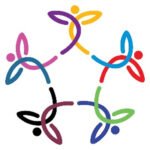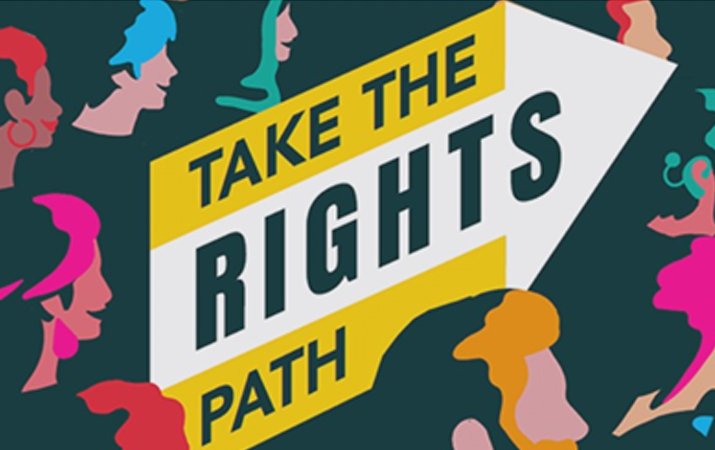This year’s World AIDS Day (WAD) theme emphasizes the importance of upholding the principles outlined in the United Nations Declaration on Human Rights. It highlights the need to include all communities, recognizing that such inclusivity is crucial for effectively combating the AIDS epidemic.
This theme aims to promote sustainable development but also underscores the significance of human security and human rights for everyone. Additionally, this year marks a significant milestone, as it commemorates the 75th anniversary of the Universal Declaration of Human Rights, reminding us of the ongoing struggle for dignity and rights for all individuals.
It is about 40 years since the virus became popular and infections were recorded among injecting drug users (IDU) and men having sex with men (MSM). It was during this period and the 90s that the world witnessed a rapid spread of the virus and AIDS-related deaths.
As the new millennium began and the ambitious Millennium Development Goals were introduced, a significant target emerged focused on reversing the alarming spread of three critical diseases: HIV, tuberculosis (TB), and malaria. In 2002, in response to this pressing health crisis and the urgent need for coordinated action, the Global Fund for HIV, TB, and Malaria (GFATM) was established.
This pivotal organisation was created to provide essential financial support to countries grappling with these devastating diseases, particularly in the developing world, where the burden of these illnesses is most severe. Through strategic funding and partnership, the Global Fund aims to empower nations to combat and ultimately reduce the impact of HIV, TB, and malaria on their populations.
As reported by UNAIDS, the epidemic has recorded 5.8 million people living with HIV in the Asia-Pacific region. 2.1 million are women. 370,000 are young people. 240,000 new infections were recorded in 2021. In 2021 UNAIDS confirmed a total of 130,000 AIDS related deaths in the Asia Pacific region.
Sri Lanka and HIV
Sri Lanka has come a long way since its first HIV discovery in the late 80s. As civil society organisations working on the HIV/AIDS response, we acknowledge the role, responsibility, and commitment of the NSACP in minimising the spread of HIV in Sri Lanka. Sri Lanka remains a low-prevalence country due to the collective efforts of a multisectoral and multistakeholder response.
Sri Lanka’s strategic focus on HIV prevention remains with MSMs, IDUs, sex workers, prison inmates, and beach boys. This is keeping in line with the GFATM broad strategy of recognising these populations as most-at-risk-populations (MARP)
Policy recognition
Every individual has the inherent right to be recognised and included in national policies and strategic action plans. These initiatives should focus on protecting and supporting all citizens, especially in promoting inclusivity and non-discrimination. Furthermore, these policies must align with universal principles and declarations of human rights, ensuring the dignity and rights of every person are upheld. This commitment guarantees that fundamental freedoms are honoured and respected in all areas of governance, reinforcing equity and justice within society.
In recent times we as civil society organisations and movements have seen discriminative policies against minority groups like the LGBTIQ and migrant worker communities. Understanding that the national HIV policy stipulates that it does not discriminate against any person who is HIV positive in obtaining treatment and care, we have witnessed people being ill-treated in care and treatment settings because of their sexuality and sexual orientation.
No policy can be complete without the recognition of gender equality. In the case of the national HIV policy, we must address the equality of all genders without stigma and discrimination, and the inclusivity of women, men, children, trans people, and gender-diverse people and give them the space to address and respect their sexual needs.
We continue to battle with authorities to recognise HIV-positive migrant workers in the workplace without stigma and discrimination. We continue to address migrant workers and their vulnerability to HIV in our local and national interventions. We hope that the government and the health ministry will recognise the large migrant worker population in policy recognition.
Sri Lanka has come a long way in sexual and reproductive health, sexual health and sexually transmitted diseases with strong networks across the country and the GFATM technical and financial support. The NSACP over the years has done a yeoman service to keep HIV at a low prevalence level. We believe that the time is right to revisit the national policy on HIV. We believe that since this policy was launched in the early millennium decade many developments have taken place. If we are to engage in inclusive policy, this is the moment to review the national policy towards reaching the 2030 SDG Agenda.
We would like to make the following recommendations to the government;
- To include HIV prevention, STI, and sexual and reproductive health knowledge more comprehensively in pre-departure training programs for migrant workers.
- Allocate more funding for HIV prevention, testing, and health programs targeted at migrant workers and their families.
- Offer a comprehensive free health package for returnee migrants to identify NCDs and other infectious diseases such as TB and HIV
- Regulate GAMCA medical testing centers to ensure ethical medical testing practices are followed and they practice regulatory guidelines of the Health Ministry
- Streamline referrals of HIV-positive cases identified by GAMCA clinics to the National HIV program.
- Advocate with other South Asian countries for PLHIV migrants’ right to work with labour-receiving countries by lobbying through the Colombo Process.
Make strong policy actions to minimise stigma and discrimination in the workplace and in other health-seeking settings in the country.


Written by Community Development Services with support from the Life Integrators Coalition, a 23-member civil society movement working for the rights of underserved, marginalised, and vulnerable populations in Sri Lanka.
